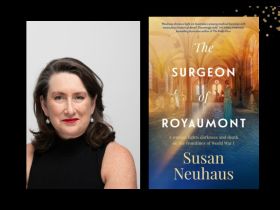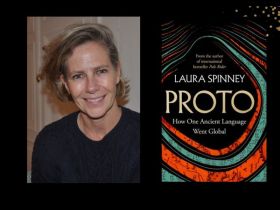Isabelle Oderberg’s Hard to Bear examines pregnancy loss through a lens of investigative journalism upheld by a strong phenomenological framework. Writing with humour, heart and intelligence, the author examines pregnancy loss from practical, cultural, medical and personal perspectives, in accessible and engaging prose. Touching on subjects as varied as defining personhood and the disposal of remains, Oderberg negotiates a gentle path through grief with informed analysis, with an overarching aim towards abolishing taboo.
Pregnancy loss is a common occurrence hiding in plain sight, and the oppressive silence surrounding the topic comes at the direct expense of those with lived experience. Hard to Bear asks why this subject remains taboo, and attempts to rectify the devastating impacts of misattribution, misinformation and misunderstanding surrounding miscarriage, including the connotations of the word itself. From the pressure women face to “do things naturally”, to the very real physiological risks of pregnancy loss, the author wades through depressing streams of cold definitions and picks apart the damaging consequences of careless clinical language.
She acknowledges the dismissive attitudes often directed towards newly bereaved parents and emphasises the absurdity of failing to acknowledge the trauma of this major life event, which often encompasses the agonising death of dearly held dreams in addition to the more obvious physiological impacts.
Oderberg’s informative, research-backed journalism is interspersed with a plethora of personal anecdotes, including experiences from her own journey, in an examination of how empathy can mediate the otherwise uncrossable chasm between conscious experience and theoretical understanding. Delving into the lack of reproductive autonomy experienced by women throughout most of history, Hard to Bear exposes historically consistent attitudes of blame and gaslighting in a medical system that continues to utterly fail women.
From the many physical causes of miscarriage, to the socioeconomic, environmental and behavioural factors impacting women’s experiences of pregnancy loss, Oderberg focuses on an Australian context without neglecting alternative statistics and perspectives.
Hard to Bear reveals how inadequate education perpetuates detrimental outcomes on both individual and systemic levels, placing accountability in the hands of a patriarchal medical system, which is overtly guilty of the persistent dehumanisation of women. She describes how racialised health inequality contributes to these issues, particularly in Australia with its paternalistic colonial history of systemic violence, trauma and medical coercion committed against First Nations women.
Oderberg’s examination of intersectionality and identity in the context of healthcare peels back layers of injustice and outlines the roles of misogyny, racism, discrimination and religion in the perpetuation of blame and misinformation surrounding pregnancy loss.
‘Choice is great in theory, but just because services exist doesn’t mean access is equal. And if access isn’t equal, the idea of choice is a fallacy.’
Lyrical titles head a cacophony of chapters that delve into topics as thematically diverse as the medicalisation of pregnancy (‘Bad Medicine’), the surprisingly tense relationship between feminism and women’s support (‘Papa Don’t Preach’), public versus private healthcare (‘Fast Car’) and the role of technology in medicine (‘Video Killed the Radio Star’). A chapter about media representations of pregnancy loss (‘The Fame’) features a quote from Joe Brumm, creator of Australian children’s show Bluey, in which he confirms viewer speculations regarding cartoon dog-mum, Chilli. One particularly poignant chapter (‘I Wanna be Sedated’) deals with the mental health impacts of pregnancy loss, which are earth-shatteringly powerful, and yet casually dismissed by medical professionals and society at large.
There are many burning questions and few satisfactory answers surrounding the search for adequate pregnancy-loss support – a gap this book aims to bridge with scientific fact and empathic compassion. Readers who have experienced poor healthcare in the context of pregnancy loss will be infuriated – but not surprised – by the systemic issues uncovered by the author’s research. Aptly titled, Hard to Bear may be emotionally triggering to the same demographic it is most likely to benefit. However, as evidenced by the author’s dedication to the cause, perseverance can lead to positive outcomes, and this book does end on an optimistic note.
Read: Book review: Girl in a Pink Dress, Kylie Needham
Hard to Bear is essential reading for anyone interested in the intersection of systemic inequality, empirical evidence and lived experience. The wisdom and warnings contained within will echo loudly in the hearts and minds of compassionate carers, victims of loss and – hopefully – future generations of ethical medical professionals.
Hard to Bear by Isabelle Oderberg
Publisher: Ultimo Press
ISBN: 9781761150500
Format: Paperback
Pages: 352pp
Release Date: April 2023
RRP: $36.99





